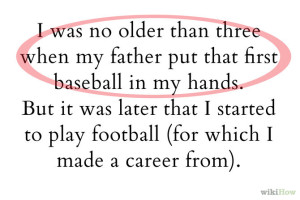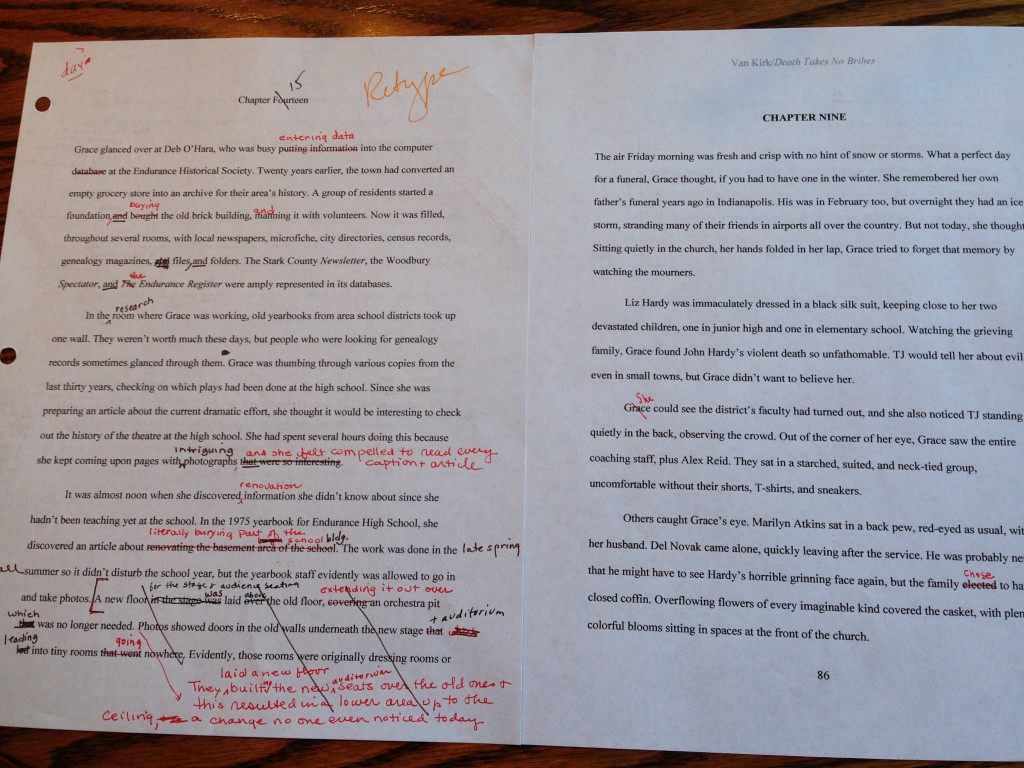 I just sent my third book off to the publisher, and the last few weeks have been grueling. People may think that once a book is done the author is finished. However, editing and proofreading take a long time, as does formatting the manuscript. The latter also involves swearing.
I just sent my third book off to the publisher, and the last few weeks have been grueling. People may think that once a book is done the author is finished. However, editing and proofreading take a long time, as does formatting the manuscript. The latter also involves swearing.
I didn’t used to believe that reading a book out loud would catch more errors than reading “in my head.” Having just finished Death Takes No Bribes (Book Three of the Endurance Mysteries), I have changed my mind. People often ask how books can be printed by major publishers and still have errors of grammar, spelling, and typography. In my  experience, I can clearly see how that happens. When I finish writing a book, I’ve probably read the chapters thirty times or more and edited extensively. My editor has checked my book, and often a friend of mine who catches the aforementioned errors has read it. But still, errors persist.
experience, I can clearly see how that happens. When I finish writing a book, I’ve probably read the chapters thirty times or more and edited extensively. My editor has checked my book, and often a friend of mine who catches the aforementioned errors has read it. But still, errors persist.
After editing comes proofreading, and reading the pages out loud makes a huge difference when a writer is trying to catch a number of often repeated errors.
First, here is the difference between editing and proofreading:
Page on the left is editing. Page on the right is proofreading. Vast difference. I think my former student, David Nichols, said on Facebook that my editing looked like his papers when he was in my high school class. Nah, not even close. I think I’m harder on myself, and I don’t have to sugar coat it. Even reading the entire book many times “in my head,” I still found errors that I caught because I read the chapters out loud. Four errors in particular are easier to catch when you hear them.
First come the content errors. A character named Evan Harrington mentions early in Book Three that he saw Liz Hardy’s car in the school parking lot the day of a murder.
Later he says he saw a car in the school parking lot he didn’t recognize.
Either Evan has a terrible memory, he’s lying, or I have a content error. It is the latter.
So, I fixed this error and Evan said in the second reference that he saw a car with John Hardy’s wife’s name—Liz—in the school parking lot the day of the murder. I caught that one because I heard it.
Grace Kimball, my main character, says she used to believe people were basically good until she found herself in the middle of a murder investigation last summer. That was a reference to the first book, Three May Keep a Secret. But I meant to reference a month ago in the second book, Marry in Haste. The more books I write, the more vigilant I have to be on these content errors. Hearing them helps me catch them. Mysteries, in particular, have to be meticulously vetted for errors because the ends must be nicely tied up.
The second kind of error that is easier to spot when reading out loud is the repetition of words close to each other. I used the word “elected” in two different ways, but within six lines of each other. I didn’t catch that when I edited in my head. But reading out loud made it obvious. The same is true when names are repeated too often. I wrote,
Grace walked over and grabbed TJ’s arm. “TJ, it’s the least I can do for Evan.” TJ put her hand on the kitchen doorknob….
Really? That many TJs? I fixed it by using “the detective” for the last “TJ.”
 The third kind of error is in sentence structure. If I can’t easily read a sentence out loud, I probably need to investigate the sentence structure. I can only catch this if I hear the sentence and try to say it.
The third kind of error is in sentence structure. If I can’t easily read a sentence out loud, I probably need to investigate the sentence structure. I can only catch this if I hear the sentence and try to say it.
Finally, proper name versus pronoun comes up often. Should I use “Grace” or should I use “she”? Read these words out loud:
TJ could tell her about evil, even in small towns, but Grace didn’t want to believe her. Grace could see…
Too many references to Grace. So I used “She could see…” and that made it less clunky sounding. Reading out loud catches those times when proper names and pronouns are repeated too often. Seriously, it’s easy to do that.
After the book is written, the real work begins. Editing takes vast amounts of energy and just plain plugging away, while proofreading needs to be done several times until the book is in the best place it can be. I find that reading out loud catches more errors than simply proofreading in my head. So far I haven’t mixed up which person or persons did the murder, but I’m sure that error is out there waiting for me to miss it.


Excellent post! Yes, we miss the darndest things. In my acknowledgments for The Hanged Man’s Noose I actually thanked my Ediotor. Thankfully we caught it at the last minute!
Thanks, Judy. It’s nice to know it isn’t just me. I’m glad you caught that!
Having no desire to learn English while in school, I had a difficult time when I was in the Coast Guard writing official reports and messages. Luckily I had an Executive Officer, who had two degrees in English, who told me to read what I wrote.. If it doesn’t sound correct to you, it won’t to the reader. It worked every time. My punctuation and spelling still need help though.
That Executive Officer was pretty smart to tell you that. Guess learning in school might have been better, but then what can you tell teenagers, right?
Glad to hear it has all worked out for you!
Great post. Somehow knowing we all make these mistakes is comforting. I guess the is not life – okay maybe writing life -without an editor.
Thanks for the comment, Kristina. Yes, I depend on my editor(s) a lot for fixing things. And my friends. And my beta readers. Ha, ha. And still a little glitch gets through here and there. But I do find that reading out loud helps a great deal.